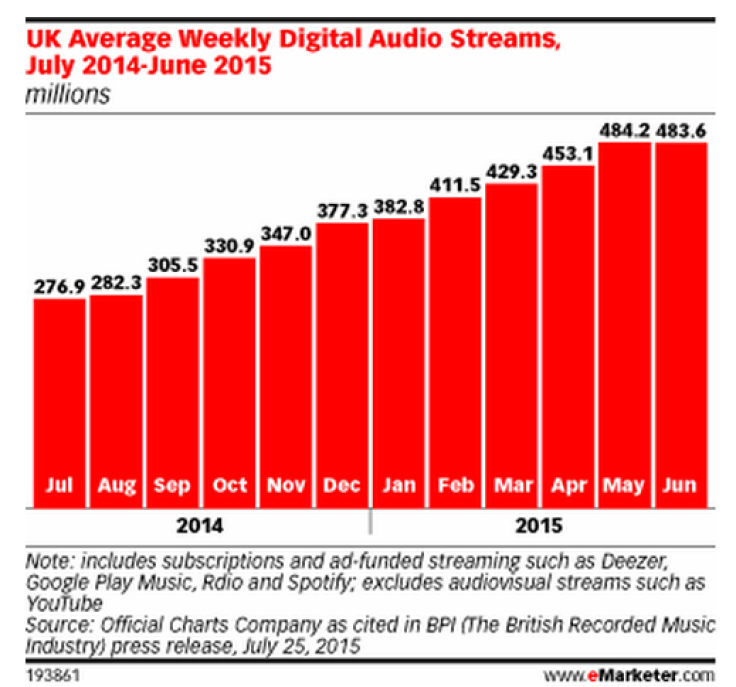Spotify And Netflix Aside, Majority Of UK Millennials Are Still Pirating Content

We may live in a world where most songs, TV shows and movies are available legally on demand, but a majority of UK millennials continue to steal them instead. According to research conducted by Kantar Media and published by the UK Copyright Office, 56 percent of Britons aged 16-34, and 59 percent of males in that same age range, use file-sharing services to access at least some of the content they consume every month.
The same research found that the rest of the British population is far less interested in pirating their film, music and TV -- only a quarter of Britons aged 35-54, and only 10 percent of those aged 12-15 or older than 55 access content illegally. Those numbers are more closely aligned with global averages, which hold that 20 percent of the world’s Internet users resort to piracy to access digital content online. But the UK Copyright Office’s research suggests that Britain’s piracy problems may be more severe than average: 45 percent of British Internet users fall into the millennial age bracket.
Bucking The Trend
These are worrying numbers for one of the world’s largest markets for music, film and TV. They also defy a pattern that has emerged over the past decade: in markets where legal alternatives to piracy start to grow, piracy tends to fade.
It is difficult to make an apples-to-apples comparison because few countries conduct regular research on the demographics of file-sharers. But research done by different firms tells a similar story. In North America, for example, the popular filesharing service BitTorrent accounts for just 6 percent of web traffic today, a massive drop from the 60 percent it accounted for over a decade ago, or the 31 percent it accounted for in 2008, according to research conducted by Sandvine. While efforts to block piracy hubs and legal offensives have played a role, a lot of the credit has been given to the rise of services like Netflix, Spotify and Amazon Instant Video. Indeed, during peak Internet use hours, Sandvine found that in 2014, Netflix accounted for some 34 percent of North American web traffic, while BitTorrent accounted for less than five percent.

In the UK, those services and others have grown considerably as well; just two years after its UK launch, Netflix is the second-highest consumer of bandwidth in that country, and according to the Official Charts Company, the firm trusted by the British music industry, UK consumers streamed an average of more than 500 million songs per week in July 2015, an increase of more than 80 percent from July 2014. This past year, revenue from streaming services rose sharply and became the second-highest source of digital music revenue, behind full album downloads, according to the International Federation of Phonographic Industries.
Yet despite that growth, millennial enthusiasm for piracy remains undisturbed. Whether the generation that follows them will act the same way remains to be seen.
© Copyright IBTimes 2024. All rights reserved.











